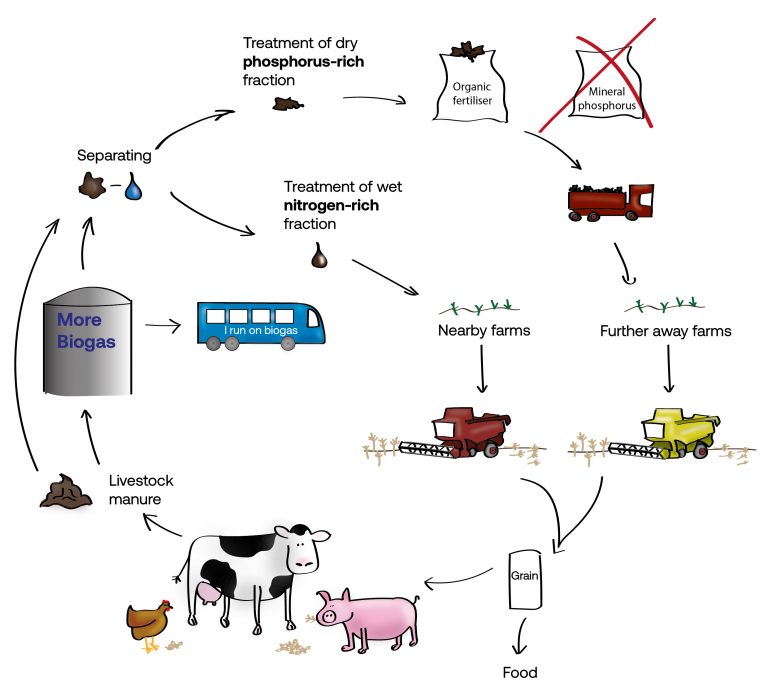Around the Baltic Sea, agriculture has become specialized, with some regions engaging in intensive crop cultivation and others focusing on large-scale animal husbandry. Nutrients, phosphorus and nitrogen, are needed for crop production. At the same time, livestock farming produces large amounts of nutrients via manure. Animal manure is heavy to transport over longer distances, prompting crop-producing regions to purchase mineral fertilizers, while nutrients from animal manure risk leakage, thereby contributing to the eutrophication of the Baltic Sea.
An improved recirculation of animal manure contributes to the fulfilment of policy sustainability goals and environmental requirements, while also becoming a source of income for livestock farmers. The project Circular NP – Better nutrient cycle for animal manure aims to develop techniques for binding nitrogen and extracting phosphorus from animal manure, creating new fertilisers that are easier to transport over long distances – for example, from areas with excess nutrients to areas with deficits. Researchers within the project are evaluating numerous techniques to procure attractive and organic fertilizer products. The products will later be tested in cultivation trials to determine the most beneficial product from an agronomic and economic perspective. Circular NP examines a variety of treatments of manure based on science and in collaboration with producers, potential customers, and governmental authorities.
The aim of the project is to:
- Find technical solutions for extracting nutrients, primarily phosphorus but also nitrogen, from animal manure and create fertilisers that are transportable over longer distances, e.g., from areas with excess nutrients to areas with deficits.
- Evaluate the plant nutrient values of these fertilisers.
- Evaluate the environmental impact of the technologies.
- Conduct case studies for the purpose of evaluating treatment methods and end products (fertiliser fraction).
- Disseminate the results of the project to stakeholders and other interested parties around the Baltic Sea.

Together with More Biogas, a biogas plant owned by an agricultural cooperative in Läckeby outside of Kalmar, the project will implement a number of case studies. The biogas plant receives animal manure from about 20 farmers in the region. Both digestate from More Biogas and separated raw manure will be used in the research project.
The project is conducted by BalticWaters in close collaboration with the Swedish University of Agricultural Sciences (SLU) and the Research Institutes of Sweden (RISE).
Information on case studies and results of the measures will be published on a regular basis, as we will evaluate the possibility of establishing new projects and measures continuously.
